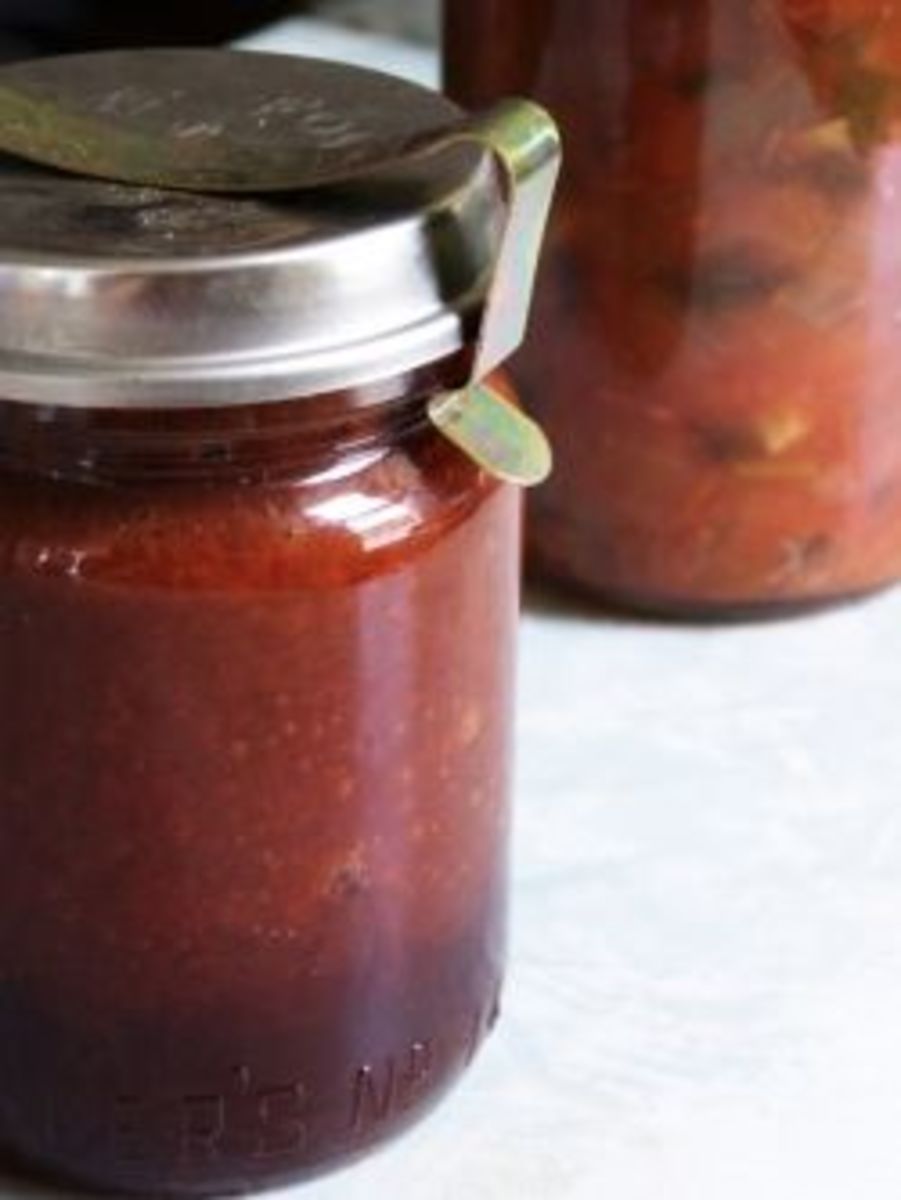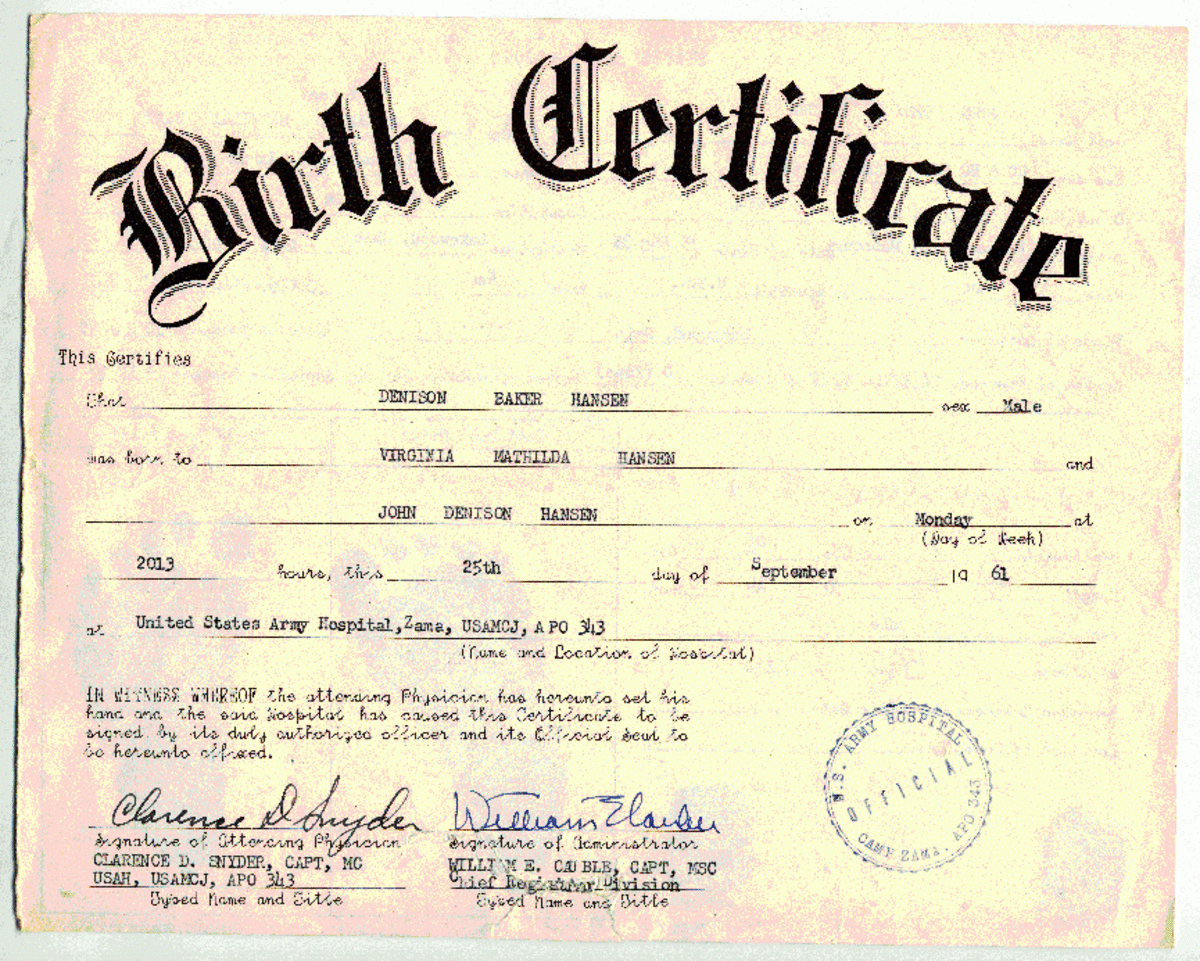Does Salt Make Water Boil Faster or Not?
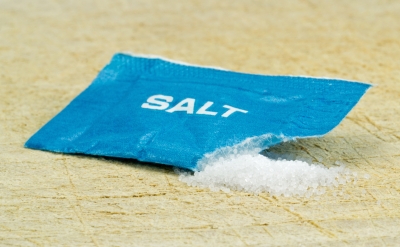
Does adding salt to water make it boil faster?
This hub is about a simple yet interesting science-related stuff, albeit without the mind-overwhelming scientific terms that may annoy the casual reader. The title of this hub is actually just about one of the many questions asked to me by my kids, which urged me to find answers. It may just be very trivial to some, but knowing the answer to the question certainly adds to our knowledge base, and it's fun knowing these kinds of stuff too.
So back to the question: “Does salt make water boil faster?” Some people believe that it does while some believe otherwise, which is the reason why this question has been cropping up many times not only amongst the kids but also amongst many adults as well. But before getting to the right answer, it is worthwhile to first delve into a little bit of the science behind the boiling properties of water.
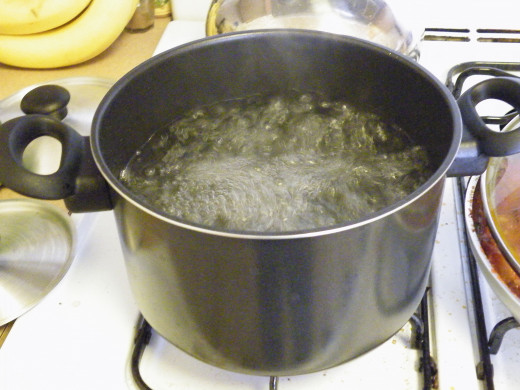
Why Does Water Boil?
In science lingo, boiling is the rapid vaporization of water or any liquid (it's not just water that boils). When water boils, we usually see the formation of large bubbles that rise up the surface of the heated water. This boiling action happens when the vapor pressure from within the heated water is equal to the pressure that is being exerted by the atmosphere on the heated water's surface.
Technically, water will evaporate even under room temperature, although at a much slower space. As a matter of fact, water will even attempt to boil under room temperature by trying to form very tiny water vapor bubbles; however, the pressure exerted by the atmosphere on the water surface is much greater than the vapor pressure inside the water, thereby suppressing the formation of the water vapor bubbles.
When water is heated, the energy inside the water increases; and when the temperature reaches 212 degrees Fahrenheit, the heat energy present in the water elevates the vapor pressure at such a level wherein the atmospheric pressure won't be able to suppress the formation of water vapor bubbles anymore. As such, big bubbles will now start to form from within the heated water and then rise up the surface to release water vapor into the air.
This very property of water explains the reason why water boils at a lower temperature at higher elevations. The atmospheric pressure present at high elevations is much lesser than at sea levels, and the temperature needed to equalize the heated water's vapor pressure with that of the atmospheric pressure found on higher elevations would be lesser than 212 degrees Fahrenheit.
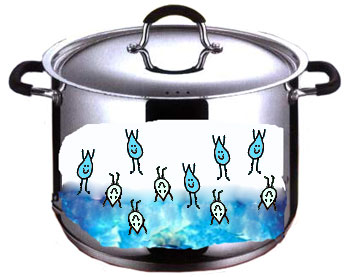
Salt as a Solute and How It Affects the Boiling Point of Water
For the ordinary mind, salt is just a flavor-enhancer, but to the scientific mind, salt is a solute that has the capability of changing some of the properties of water, more particularly its boiling point and its freezing point. Salt, when mixed with water, lowers the water's freezing point and increases the water's boiling point. This is the reason why large amounts of salt are added to roads during winter. In the same principle, this is the reason why salt is added by chefs to water. Because salt increases the water's boiling point, it makes it hotter than 212 degrees Fahrenheit, and at higher temperatures, food cooks faster and efficiently.
On a side note, one good example of a cooking technique that capitalizes on the boiling property of water is the use of a pressure cooker, which, basically, is just an "airtight cooking pot". When water is heated inside the pressure cooker, the "internal pressure" builds up significantly because of the steam that gets trapped inside. The vapor pressure needed to overcome this "internal pressure" cannot be achieved at 212 degrees Fahrenheit, and thus, the boiling temperature of the water inside the pressure cooker increases significantly, resulting in a superheated water with temperatures reaching as high as 260 degrees Fahrenheit. A water that hot will dramatically decrease cooking time.
Does Salt Make Water Boil Faster?
Knowing the reason why water boils at 212 degrees Fahrenheit and the fact that salt increases the boiling point of water, then we can already conclude that: "No, salt does not make water boil faster."

